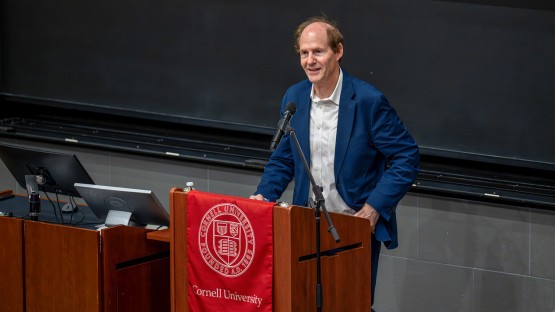
"Sunstein asked the audience to consider three propositions: that "universities are arsenals of democracy"; that arsenals of democracy should not limit speech based on "viewpoint discrimination"; and that a university should not use its educational mission to justify "special restrictions on offensive or hurtful speech." To illustrate viewpoint discrimination, Sunstein provided a simple scenario: banning loud music late at night. If all music is banned, it is not viewpoint discrimination; however, if only some is banned, it is viewpoint discrimination."
""When things get hard, it's often useful to think of a framework that minimizes the number and terribleness of mistakes," he said. "The existing First Amendment principles are something to celebrate, and to bring on board with pride and gratitude." Universities must avoid requiring "compulsory unification of opinion," Sunstein said, quoting the late Supreme Court Justice Robert H. Jackson. As Jackson said, Sunstein continued, when a university limits speech it "achieves only the unanimity of the graveyard.""
First Amendment law and the pursuit of truth should guide free speech on college campuses. Universities function as arsenals of democracy and should not limit speech through viewpoint discrimination. Educational missions should not justify special restrictions on offensive or hurtful speech. A neutral rule applied universally, such as banning all loud music late at night, does not constitute viewpoint discrimination, whereas selectively banning certain types of expression does. Private universities should adhere to First Amendment principles. Supreme Court case-by-case rulings in the 1970s and 1980s provided important clarifications about free speech. Universities must avoid compulsory unification of opinion.
Read at Cornell Chronicle
Unable to calculate read time
Collection
[
|
...
]